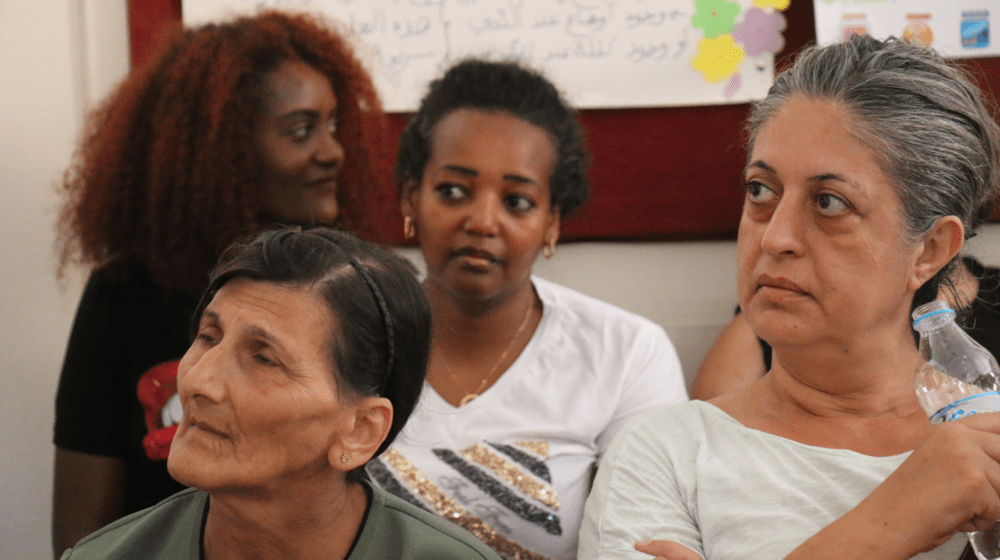“This medical mobile unit may have saved my life”, says Laurette, a Lebanese woman who could no longer afford gynecologist consultations following the 2019 nationwide economic crisis in the country. “Despite experiencing physical discomfort, I could no longer cover transportation and medical costs, so I just ignored the pain”, she explains. It wasn’t until Laurette entered a UNFPA-supported mobile medical unit parked a few blocks away from her home that she received her first gynecologist consultation in five years. “During this free-of-charge consultation, the doctor not only detected infections that could have developed into serious complications if remained untreated, but also provided the needed treatment”.
With funding from the people of Japan, and in partnership with the Ministry of Social Affairs (MoSA), the Social Workers’ Syndicate in Lebanon, Caritas, and Amel association, UNFPA in Lebanon is enhancing integrated and lifesaving Gender-Based Violence (GBV) and Sexual and Reproductive Health (SRH) services to respond to the escalating needs of women and girls across the country. As part of this effort, UNFPA is supporting five medical mobile units, two women and girls’ safe spaces, and one primary health care center in the North, South and Mount Lebanon governorates to ensure that those in need receive free SRH and GBV services. “This project is not just a collaboration; it is lifesaving for many vulnerable populations in Lebanon. The services offered provide support to every girl and woman throughout her life cycle, from SRH medical consultations including maternal care and family planning, to GBV case management, and psycho-social support”, says Pamela Di Camillo, UNFPA Officer in Charge in Lebanon. Other services also include the provision of dignity kits and outreach sessions on SRH and GBV.
"Japan places great importance in supporting women and girls and promoting inclusive assistance, especially amid challenging contexts when such support is needed the most”, says First Secretary at the Embassy of Japan in Lebanon, Yumiko Honda. “This generous contribution from the people of Japan, coupled with the successful collaboration between the Ministry of Social Affairs and UNFPA, is contributing to the ministry’s national strategy for social protection. This is through the vital support to women and children, as they are among the most vulnerable groups exposed to risks during crises”, says Adel El Chabab, Advisor to MoSA.
The SRH and GBV services supported by UNFPA under this project, funded by Japan, are available to women and girls of all nationalities residing in Lebanon. “We are not only covering a medical service, but a needed social service as well. This integrated, holistic approach is essential in ensuring tangible impact, especially during times of crises”, says Dania Abi Haidar, Social Workers Syndicate Representative in Lebanon. Through this project, and in addition to the previously mentioned services, UNFPA is enhancing women empowerment and GBV risk mitigation through developing the capacities of service providers and public health center educators on SRH and GBV integration.


